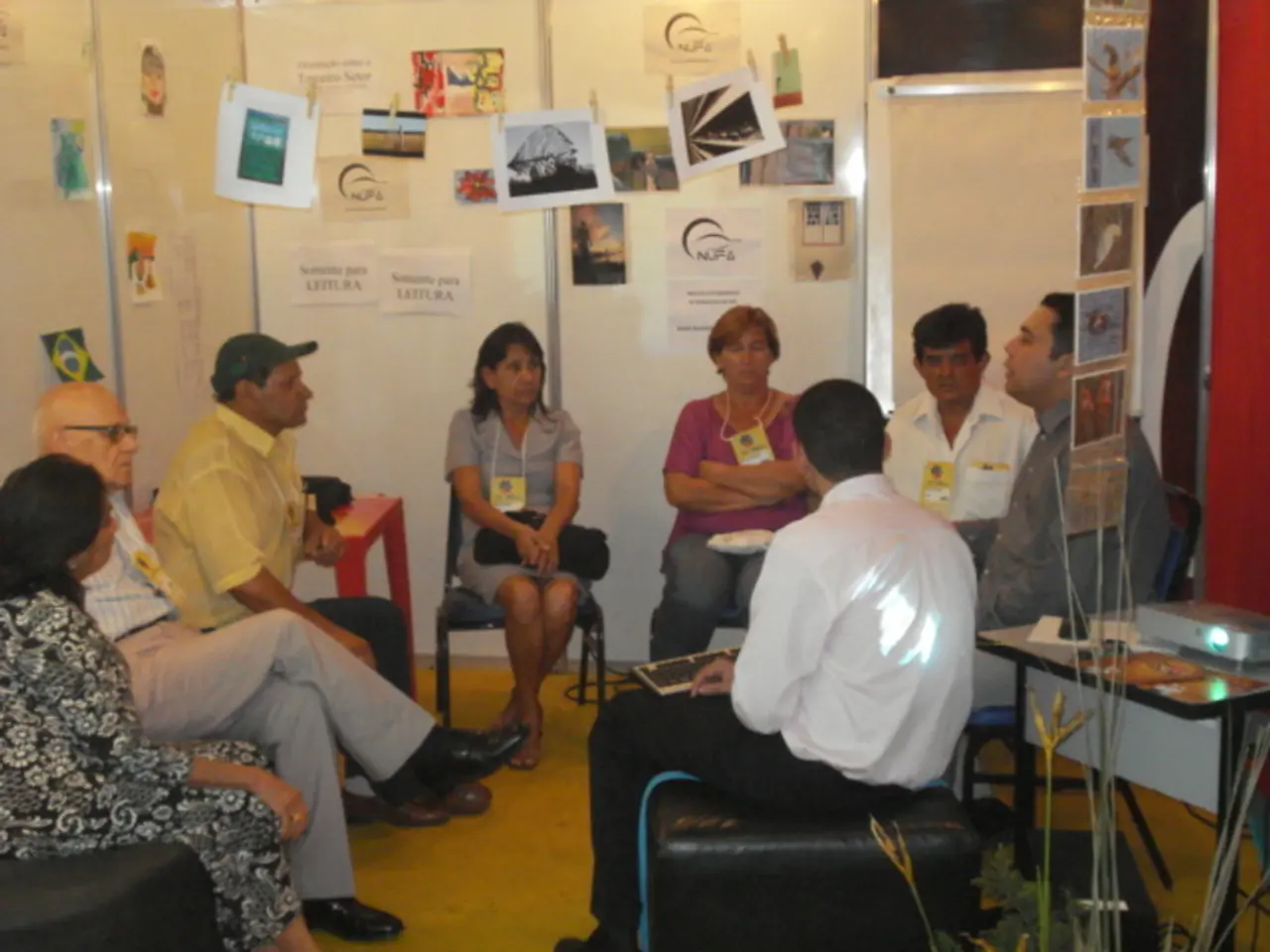Defending Your Political Party from Manipulations on Social Media by Trolls
In the digital age, political discourse is not immune to manipulation, with social media platforms serving as breeding grounds for political trolling. Trolls, often working to undermine credibility or shift narratives, employ various tactics such as astroturfing - creating fake grassroots support - and microtargeting communities [1].
To identify these trolls, look for coordinated accounts or users spreading inflammatory, derogatory, or false information intended to provoke emotional reactions, polarize opinions, or discredit political opponents. These trolls often use frequent, unpredictable messaging, employ coordinated hashtags, mass replies, and outrage bait to boost visibility and trigger recommendation engines to amplify their content [1][5].
Combat political social media trolling effectively by:
- Enhancing public digital literacy: Educate social media users on recognizing misinformation and trolls through inoculation-based interventions, such as gamified learning tools and passive educational materials that teach critical evaluation of content [4].
- Promoting counter-speech and reporting: Encourage citizens to support targeted politicians with positive comments and report abusive or troll-generated content to platform moderators, which can reduce tolerance for online abuse and reduce its impact [2].
- Using transparency and monitoring tools: Leverage platforms like Hamilton 2.0 to detect bot and troll activity by analysing traffic patterns and trending disinformation sources, helping to expose coordinated campaigns that manipulate political discourse [5].
- Norm-setting and awareness campaigns: Inform users about the negative consequences of trolling for democracy and political discourse to reduce acceptance of abusive online behavior [2].
- Policy and platform actions: Encourage social media platforms to enforce rules against coordinated disinformation and abusive accounts, using advanced algorithms and human moderation to identify and remove trolls.
Voters can protect themselves by critically evaluating content, avoiding emotional bait, using fact-checking sources, and reporting suspicious or abusive behavior on platforms. It's important to note that a critic offers genuine disagreement or feedback, while a troll aims to provoke, derail conversations, or spread chaos [3].
Political campaigns are often targeted by individuals or organized groups who post inflammatory, misleading, or disruptive content. Some parties even use paid or volunteer troll armies to push agendas, attack opponents, or flood platforms with favorable or hostile content. To protect your party from social media trolls, consider our political marketing consulting services [6].
Trolls frequently use memes to simplify hate, spread misinformation, and normalize extreme views under the guise of humor. Troll traps are bait content designed to provoke trolls into overreacting, allowing the original post to gain attention and support as a result. Responding to trolls strategically can expose lies, build credibility, or rally support, but it must avoid feeding the troll's agenda [7].
Trolls often target media figures to discredit reporting, intimidate dissent, or spread confusion around facts and narratives. Not all trolls are anonymous; some use real or semi-real identities [8]. Troll accounts that use a mix of automation and human control to post content quickly are known as bot-troll hybrids [9].
In some jurisdictions, coordinated trolling, hate speech, or harassment can lead to FIRs, takedown notices, or criminal investigation [10]. Targeted trolling can intimidate candidates, journalists, or activists, leading to self-censorship or disengagement from the political process [11].
In summary, combating political social media trolling in campaigns requires a multifaceted approach including improved public awareness, active countering behaviors by citizens, technological detection tools, and robust platform governance backed by educational initiatives to build resilience against manipulation [1][2][4][5].
[1] https://www.wired.com/story/political-social-media-trolling-influence-campaigns/ [2] https://www.theguardian.com/technology/2018/oct/05/online-trolling-hate-crime-law-uk [3] https://www.theatlantic.com/politics/archive/2016/10/the-troll-in-chief/505839/ [4] https://www.ncbi.nlm.nih.gov/pmc/articles/PMC7311785/ [5] https://www.wired.com/story/how-to-spot-a-fake-news-story/ [6] https://www.politicalmarketingconsultant.co.uk/ [7] https://www.theverge.com/2016/10/20/13339844/how-russian-trolls-weaponized-memes-to-influence-the-us-election [8] https://www.nytimes.com/2018/03/15/us/politics/russia-troll-accounts-twitter.html [9] https://www.wired.com/story/russian-trolls-used-bot-troll-hybrids-to-influence-the-us-election/ [10] https://www.bbc.com/news/world-asia-india-47183145 [11] https://www.theguardian.com/media/2018/oct/10/the-troll-army-that-targeted-the-media-during-the-us-election-campaign
- Politicians must be mindful of the threat of disinformation on social media platforms, as trolls often work to undermine their reputation or shift narratives through the use of inflammatory, derogatory, or false information.
- To combat this issue, political campaigns can seek consulting services to enhance their social media strategy and protect against coordinated disinformation campaigns.
- In addition to consulting services, it's crucial for political figures to promote counter-speech and reporting, encouraging supporters to report abusive or troll-generated content to platform moderators.
- Analytics tools can also be utilized to detect bot and troll activity, helping to expose coordinated campaigns that manipulate political discourse.
- Furthermore, politicians can leverage social media analytics to track sentiment and identify trends in general-news and entertainment topics that may impact their reputation or image.





